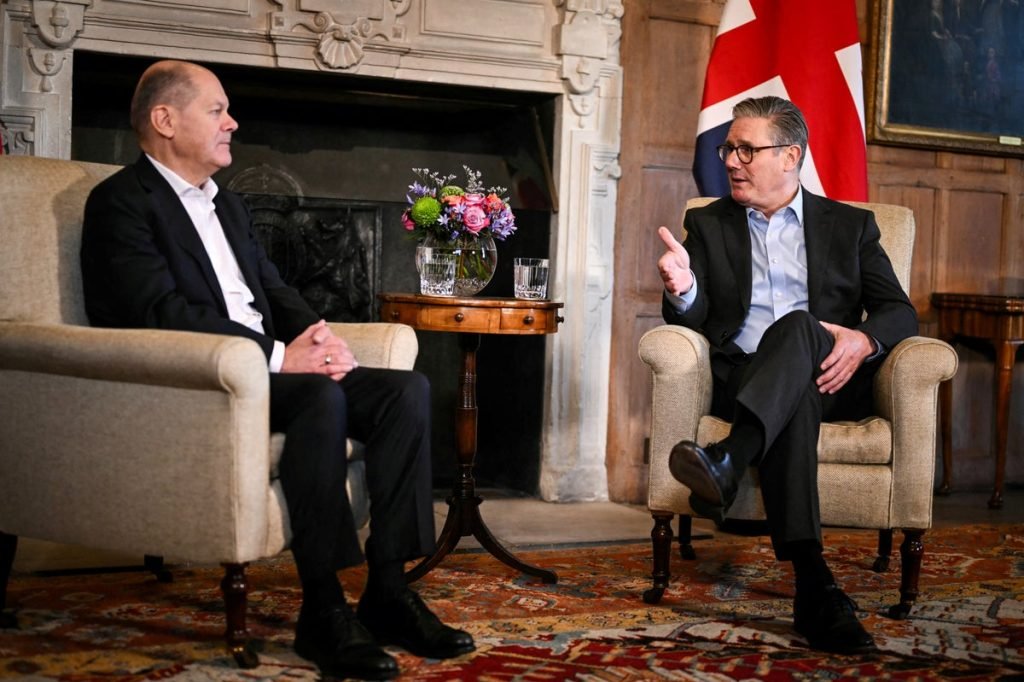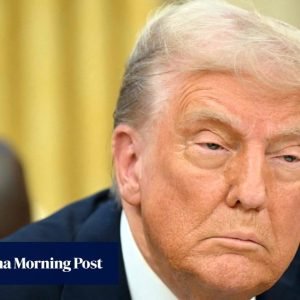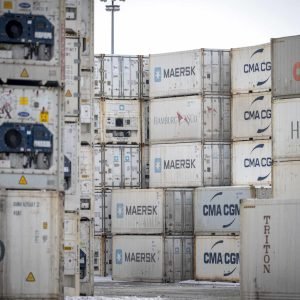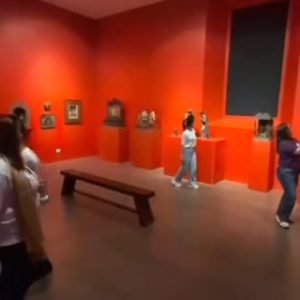
Sir Keir Starmer will place security and defence at the heart of his post-Brexit reset with the EU, calling on leaders in Brussels to stand together and double down on their support for Ukraine.
At a meeting with EU heads of state in Brussels on Monday, the prime minister will challenge Britain’s European allies to ramp up their defence spending to keep the continent safe from Vladimir Putin’s “campaign of sabotage and destruction”.
Sir Keir will call on European leaders to keep up the pressure on Putin by standing firm with sanctions that have crippled the Russian economy since his full-scale invasion of Ukraine in 2022. And he will tell allies to keep up military support to Ukraine, ensuring Volodymyr Zelensky is in the strongest position possible as Donald Trump’s return to the White House increases the prospect of a negotiated end to the war.

Backing Mr Trump’s demands for Nato members to significantly boost their spending on defence, at Monday’s talks Sir Keir will say: “We need to see all allies stepping up – particularly in Europe.”
The PM has promised to raise Britain’s defence spending to 2.5 per cent of the overall size of the economy (GDP), but has come under pressure to set out a timeline of when the UK will reach the milestone.
Sir Keir added: “President Trump has threatened more sanctions on Russia and it’s clear that’s got Putin rattled. We know that he’s worried about the state of the Russian economy.
“I’m here to work with our European partners on keeping up the pressure, targeting the energy revenues and the companies supplying his missile factories to crush Putin’s war machine.

“Because ultimately, alongside our military support, that is what will bring peace closer.”
On the eve of his visit, the prime minister welcomed German Chancellor Olaf Scholz to his country residence in Buckinghamshire. He ruled out rejoining the EU trade bloc, but said he wanted to forge a closer relationship non defence, energy and trade.
The pair discussed Ukraine and the Middle East, according to Sir Keir’s spokesperson, with them both agreeing Russia’s invasion of Ukraine highlighted the need to strengthen defences.
Sir Keir will become the first prime minister since Brexit to attend a dinner with EU leaders as he seeks to reset Britain’s relationship with the bloc. While talks are expected to focus on security and defence, the PM is under mounting pressure to strike a closer trading arrangement with Europe to revive Britain’s flagging economy.
And pressure on Sir Keir to strengthen Britain’s trade ties with the bloc is mounting in the wake of Mr Trump’s decision to impose tariffs on the US’s nearest neighbours, with the threat of a global trade war looming.
Liberal Democrat leader Sir Ed Davey has said that Mr Trump is “tearing apart the rules from trade to security” and called for Britain to “step up and lead with our neighbours in Europe”.

He is urging chancellor Rachel Reeves to order an official analysis on the benefits of Britain agreeing a customs union deal with the EU. Labour has ruled out a return to the customs union as one of its so-called red lines in the ongoing reset.
Sir Keir on Monday will meet NATO general secretary Mark Rutte before attending a dinner of the 27 EU leaders at an informal meeting of the European Council.
He will pitch a defence and security partnership which would see the UK and EU boost cooperation on shared threats, as well as on tackling cross-border crime and illegal migration.
Sir Keir previously discussed his hopes for a defence and security pact with the EU in an interview with The Independent, detailing how it would complement Nato.
Asked what this increased cooperation would look like in practice, the prime minister said it would involve coordination on defence capability, funding and training, pointing to British troops training in Norway and those stationed in Estonia as an example of how the UK could work with its allies.
Ahead of the talks, Downing Street said Putin is under mounting domestic pressure in Russia, with inflation and interest rates soaring due to the combination of sanctions and the billions being ploughed into the war effort.
Russian oil and gas revenues fell by 29 per cent in 2024 compared to 2022, while sanctions have led to a spike in shipping costs and left many Russian vessels unable to trade.
And Britain has sanctioned 2,100 individuals under its Russia sanctions regime, with 1,900 imposed since the war began.







